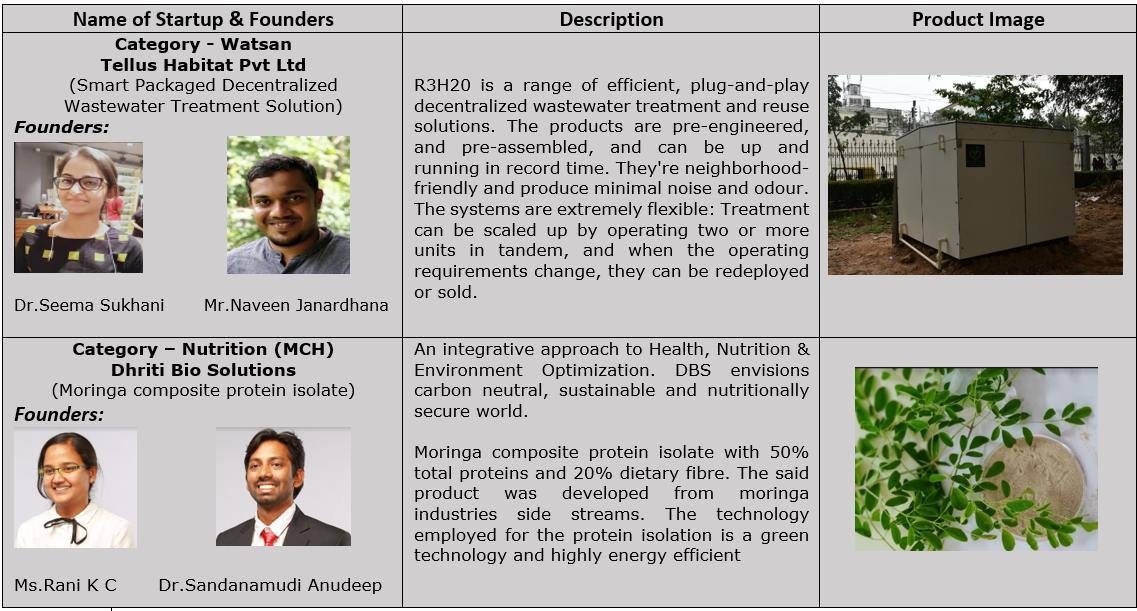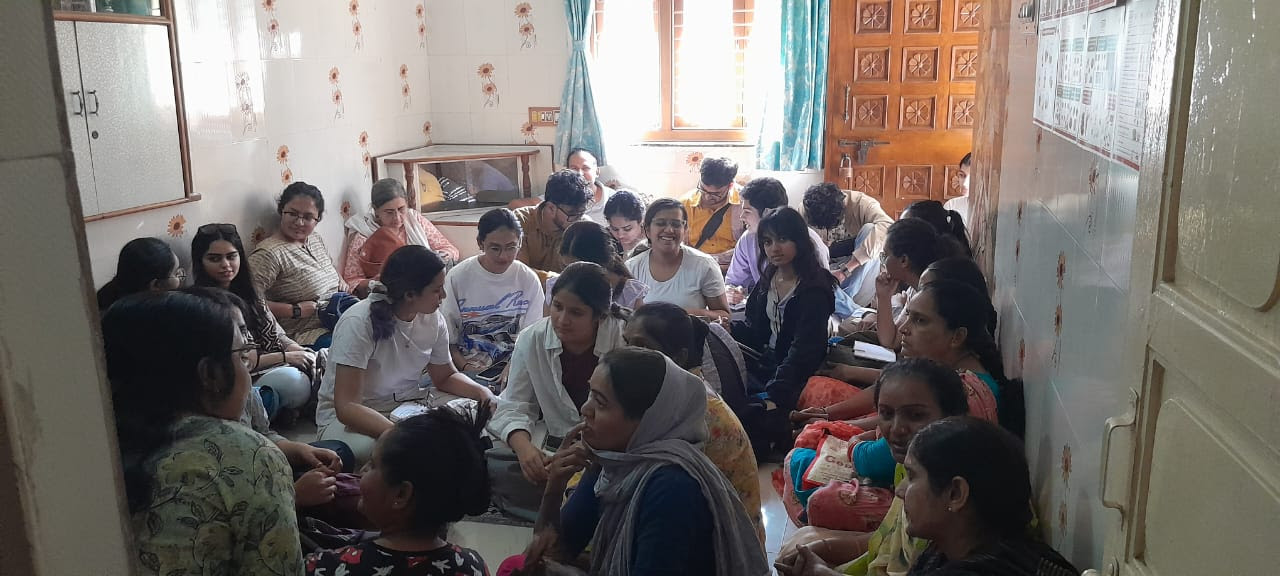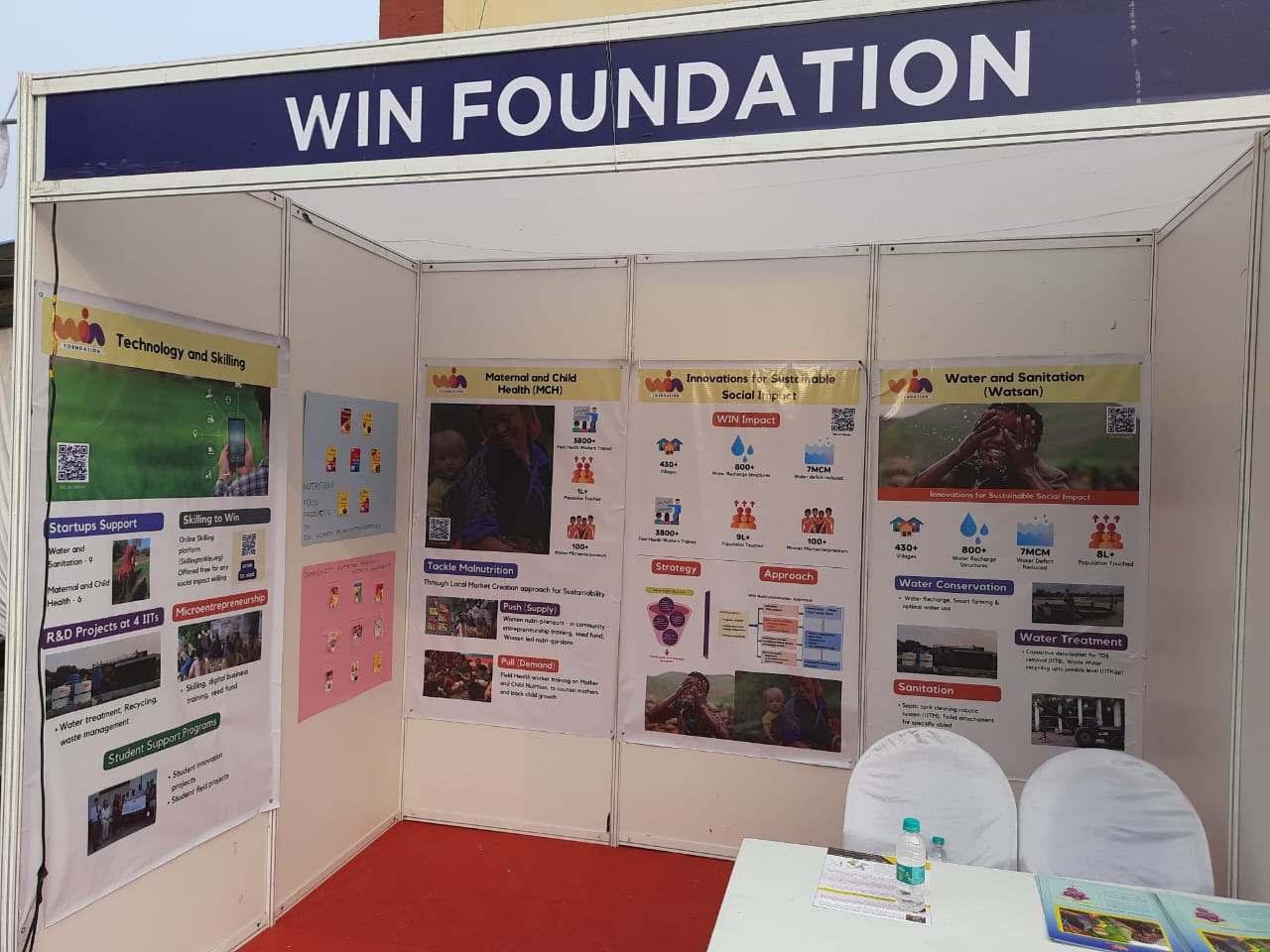|
The National Bio Entrepreneurship Competition 2022 (NBEC)
|
|
WIN Foundation was again the category partner with C-CAMP, for The National Bio Entrepreneurship Competition 2022, for the domains of (i) Water and Sanitation and (ii) Maternal and Child Nutrition. WIN Foundation has been a category partner in NBEC for the last 3 years.
From the overwhelming response with of 3000+ applications from 35
states and UTs of India, 240 were shortlisted, and from these, 26
finalists were selected through regional rounds. An illustrious 22
member Grand Jury, drawn from Indian biotech industry, partners and
funders, judged and selected the winners, identifying
India’s top bio entrepreneurial talent, at the grand finale on 16th
December. at Bangalore. The awards included a cumulative of 16 Cr INR
in cash prizes and investment opportunities while student-led teams
swooped up 9 lakhs in cash prizes.
NBEC is organized by the Centre for Cellular and Molecular Platforms (C-CAMP),
and is sponsored by the Department of Biotechnology, Government of
India, along with several reputed partners. It has emerged as the
premier national talent competition to identify and reward some of the
most promising deep tech ideas in all domains of the Life Sciences.
WIN sponsored domain winners : 
In addition to category award prize, WIN Foundation also offers
the opportunity to participate in WIN Innovative products market
validation scheme to participants and winners.
To know more, visit : http://www.nationalbioentrepreneurship.in |
|
| Nirma University - Students Program:
|
|
WIN
Foundation has collaborated with Institute of Design, Nirma
University to bring student exposure and involvement for social
projects. The objective of the program was to build awareness among
different influential groups and individuals towards social change. Under this  program/
course "Media Studies: Study of a Social Campaign'', 26 students
enrolled and closely interacted with our women Nutri-preneurs of Saath
NGO at Vasna and Danilimda centres, during the course period of 14-20
Nov, 2022. The student made a comprehensive analysis of communications
needs of the nutri-prenerus and designed media branding collaterals for
our women nutri-entrepreneurs like Nutri-preneur documentary, nutrition
promotional materials, product labels, story boards etc. program/
course "Media Studies: Study of a Social Campaign'', 26 students
enrolled and closely interacted with our women Nutri-preneurs of Saath
NGO at Vasna and Danilimda centres, during the course period of 14-20
Nov, 2022. The student made a comprehensive analysis of communications
needs of the nutri-prenerus and designed media branding collaterals for
our women nutri-entrepreneurs like Nutri-preneur documentary, nutrition
promotional materials, product labels, story boards etc. |
|
| Ideal Village Conference, Nov 11-13th at BHU, Varanasi:
|
|
Our sister foundation,  WHEELS
Global Foundation, together with Stanford Ideal Village Project, Pan
IIT-Alumni, CII, FIPA and Banaras Hindu University (Institute of
Management Studies), organised Ideal Village Conference 2022,
with the theme "Rural Transformation for Sustainable Growth", at BHU,
Varanasi on Nov 11 to 13th, 2022 It
had 6 domain tracks with distinguished speakers. WIN Foundation had
participated and put up its stall at the event venue. Mr. Paresh Vora
participated in the conference in dual capacity, representing WIN
Foundation as its Director - India Operations, as well as representing
PAN-IIT-Alumni-India as its Vice-chair. WHEELS
Global Foundation, together with Stanford Ideal Village Project, Pan
IIT-Alumni, CII, FIPA and Banaras Hindu University (Institute of
Management Studies), organised Ideal Village Conference 2022,
with the theme "Rural Transformation for Sustainable Growth", at BHU,
Varanasi on Nov 11 to 13th, 2022 It
had 6 domain tracks with distinguished speakers. WIN Foundation had
participated and put up its stall at the event venue. Mr. Paresh Vora
participated in the conference in dual capacity, representing WIN
Foundation as its Director - India Operations, as well as representing
PAN-IIT-Alumni-India as its Vice-chair. |
|
World Toilet Day 2022 - Making the invisible visible at Solinas Shauchalaya Show - 25h Nov’22
Mr. Paresh Vora, Director-India Operations, WIN Foundation was one of
key speakers in the Solinas Shauchalaya Show. It was an online event
celebrating World Toilet Day- An initiative by the UN. In this event,
discussed the challenges in the sanitation sector and groundwater
|
|
WIN session at CEPT : Mr.
Paresh Vora had an interactive session with the students of Master of
Planning at CEPT University, on 4th Nov,on rainwater harvesting, its
relevance in water conservation in urban areas and as a career option
for architect/planning students. He covered basic technical aspects of
rainwater harvesting, linked it to their planning course and possible
future directions of work in water conservation and WIN Foundation’s
work in WATSAN. Dr. Mona Iyer, Professor and Dean of Faculty of
Planning at CEPT University facilitated the session. Mr.
Paresh Vora had an interactive session with the students of Master of
Planning at CEPT University, on 4th Nov,on rainwater harvesting, its
relevance in water conservation in urban areas and as a career option
for architect/planning students. He covered basic technical aspects of
rainwater harvesting, linked it to their planning course and possible
future directions of work in water conservation and WIN Foundation’s
work in WATSAN. Dr. Mona Iyer, Professor and Dean of Faculty of
Planning at CEPT University facilitated the session.
|
|
If you wish to opt out of receiving this quarterly WIN Newsletter, please reply to this email mentioning "unsubscribe" in the subject line. |
|
|
| |
|
|